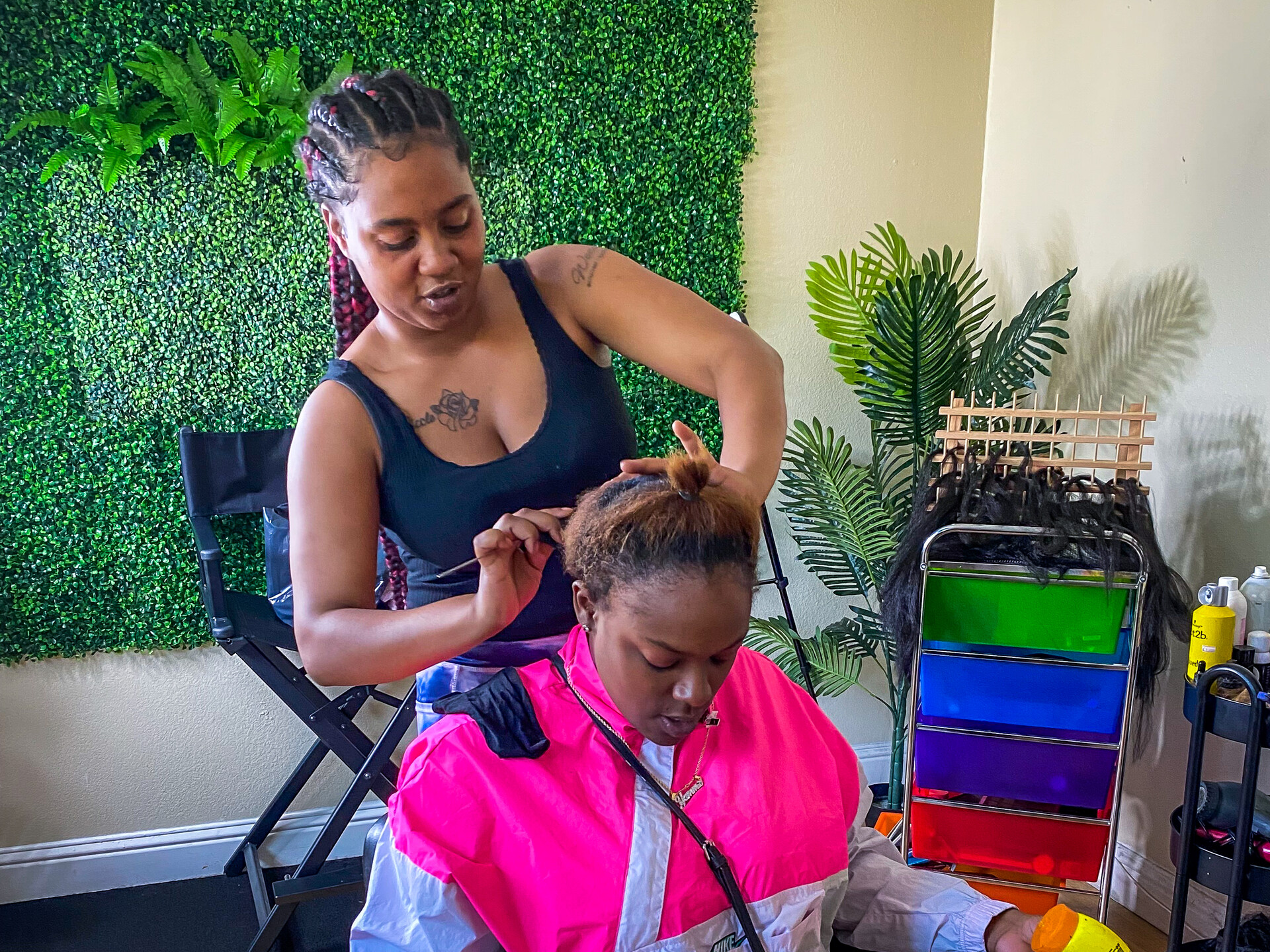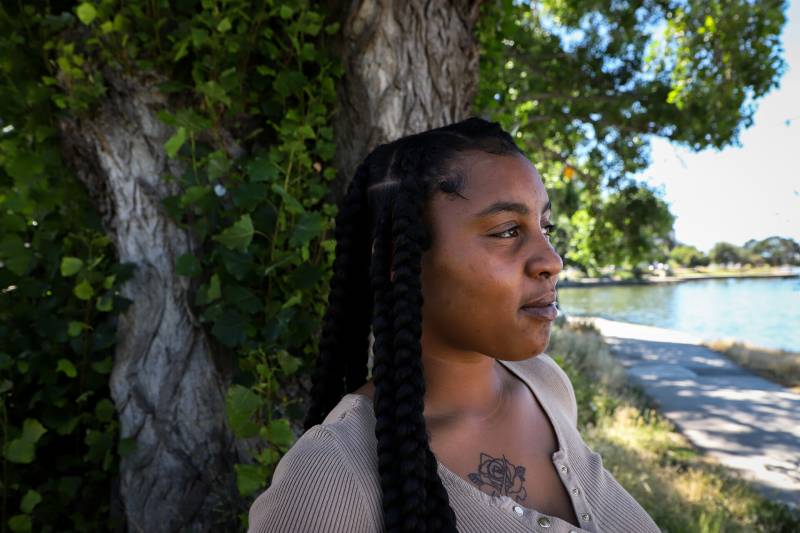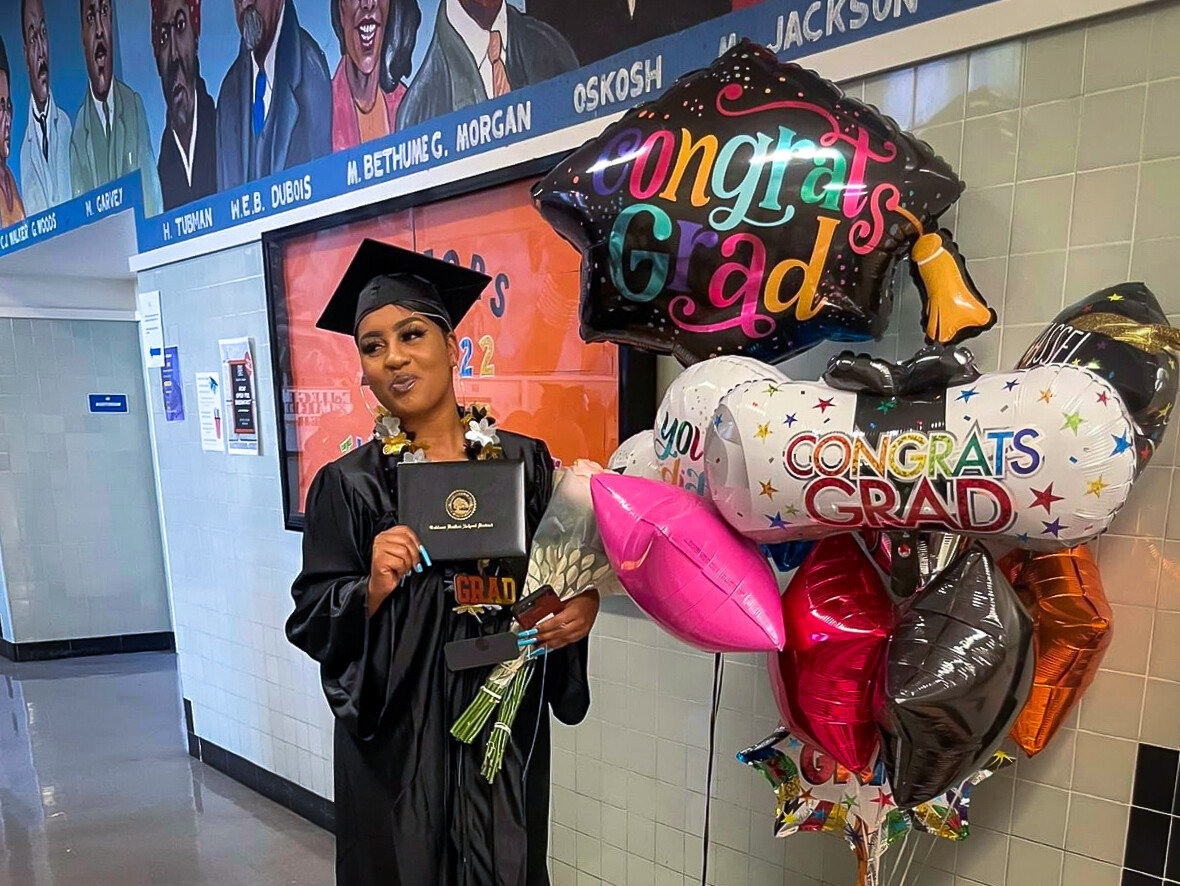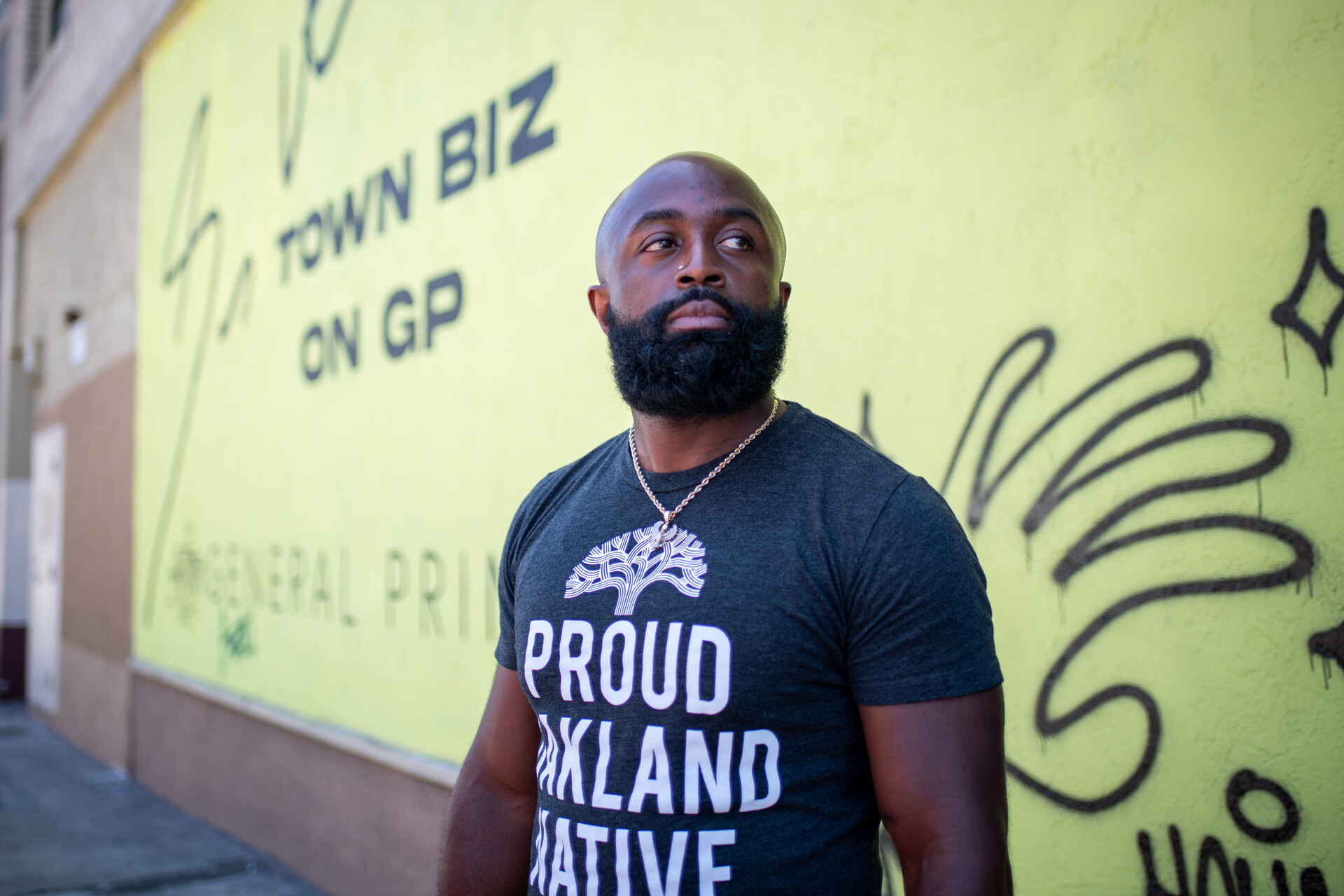I
nside a borrowed studio apartment in a two-story courtyard building in Oakland’s Fruitvale neighborhood, Nya Owens is preparing for her afternoon client, a woman named Yummy Jones who has driven all the way from Richmond, despite heavy traffic and the high cost of gas these days, just to see her.
Owens, who just turned 18, goes over styles as they watch TikTok videos of different looks. Then Owens asks Yummy to part her hair, and the work begins.
Braiding is Owens’ business, and it’s why she was so focused on graduating this year. She sees that high school diploma as the ticket to college and a degree in business administration, all part of her plan to start her own fashion company.
“I’ve loved fashion since I was a little kid. I’ve had experience with customer service, I’m a people person and I used to model,” she says.
Her future plan?
“Phase one would be to go to pop-up shops and sell clothes, promote on social media,” she says. “Phase two would be to grow my online store out of state, do raffles and also gain more and more ambassador events.”

But just last January, Owens saw those plans evaporating. Her school, McClymonds High in West Oakland, told her that unless she started showing up for school on time, she wouldn’t get to graduate. “I was falling behind because I was too busy trying to make my money and also trying to focus on school,” she says.
Owens was also behind because of a series of academic setbacks junior year: Pandemic-related distance learning had been impossible for her.



